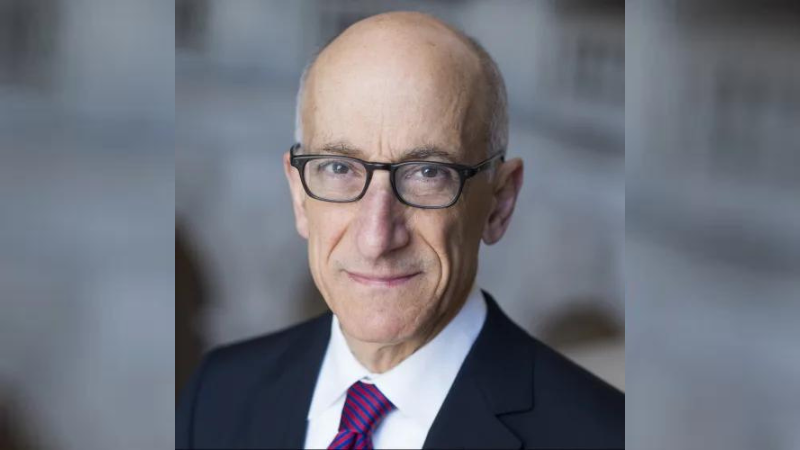On July 19, Timothy Massad, director of the Digital Assets Policy Project at the Harvard Kennedy School and a former chairman of the Commodity Futures Trading Commission (CFTC), wrote in an opinion piece for Barron's that the U.S. needs to prioritize stablecoin regulation, or it risks falling behind and being forced to follow legal frameworks implemented by other countries. Massad argued that the potential risks associated with increased use of stablecoins can be mitigated by regulating them.
“Stablecoins are likely to grow, and we are better off acting now to address the risks and maximize potential advantages. Otherwise the U.S. could become a standards taker rather than a standards maker,” Massad wrote in his opinion piece.
Stablecoins are a type of cryptocurrency whose value is pegged to a fiat currency such as the U.S. dollar or to a commodity such as gold, making them less volatile than other types of cryptocurrencies, according to Investopedia.
According to Massad, it has been two years since Treasury Secretary Janet Yellen first voiced concerns about the potential risks posed by stablecoins, and although the Treasury has issued three reports since then calling for legislative stablecoin regulations, the U.S. still has not implemented a regulatory framework for stablecoins.
"If we don’t create one soon, we may find that dollar-based stablecoins grow anyway, under legal frameworks that are not to our liking," Massad said.
Massad said the U.S. financial system "lags" behind that of many other countries but argued that "competition from stablecoins" could potentially improve it. He said in the opinion piece that although many Americans may not notice, the U.S. financial system is "slow and expensive" in comparison to how it could be. "The burden falls most heavily on the poor, who pay a lot just to use their money," Massad said. He also noted that advancing the technological aspects of the financial system could help to keep the U.S. dollar in its globally dominant position.
Although the Federal Reserve is launching its payment system FedNow in the near future, "its benefits may be limited without regulatory changes that increase access and competition, and its pricing may also discourage usage," according to Massad. He argued that stablecoins could provide benefits that FedNow will not be able to, including their price, speed, and "programmability." He highlighted the fact that stablecoins could combine functions like messaging and value transfer that are currently performed by multiple separate parties in the traditional financial system.
Massad acknowledged that stablecoins come with potential risks. For example, similar to traditional banks, a sudden spike in withdrawals could lead to a run. He also pointed out that the risk of illicit activity using stablecoins might be higher than it is with "account-based payments," but stablecoins are "much easier to track than cash in suitcases." He argued that regulating stablecoins could address their potential risks. "Issuers can be required to invest reserves only in demand deposits at banks or even central bank reserves," Massad said. "And issuers can assume some responsibility for the quality and safety of the decentralized blockchains on which their stablecoins move, just as we require banks to take responsibility for storing data on the cloud." He noted that law enforcement could also call on issuers to freeze tokens if needed.
"The White House has not prioritized the issue," Massad said, although he highlighted "thoughtful proposals" that have been introduced by members of Congress and said the House might come to a compromise soon. "Administration officials have been riding off in multiple directions," Massad said, emphasizing the contradictions between the CFTC and U.S. Securities and Exchange Commission (SEC), as well as between the Treasury and banking regulators. "Rather than fighting over which regulator’s existing jurisdiction might cover stablecoins, let’s create the proper framework from a functional perspective, which is that stablecoins should be regulated as a payment instrument," Massad said.
Massad said that the Office of the Comptroller of the Currency could work with regulators to implement a regulatory framework for stablecoins, even if Congress does not move forward with its proposals, according to the opinion piece. He said that other countries are moving forward with stablecoin licensing, such as Singapore and European nations, "which could lead to more dollar-based stablecoins being issued offshore."

